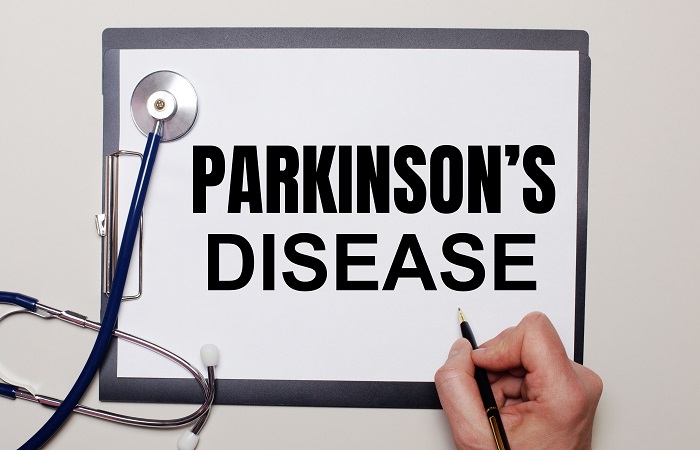Although much study has been done, doctors are still unsure of the specific cause of Parkinson’s disease. They do know that if you have the disease, it begins in some of your brain cells. Cells that produce the neurotransmitter dopamine begin to die in the substantial nigra, a brain region. Dopamine has a vital role in the body. It functions as a messenger, informing another area of your brain when you desire to move a body part.
Parkinson’s disease is a nervous system ailment caused by a neurodegenerative disease. Tremors, shaking, delayed movement, balance issues, and stiffness are all symptoms. Parkinson’s disease usually affects older people.
Your dopamine level declines when the cells that generate dopamine start to die. When it drops too low, you lose control of your movements and develop Parkinson’s symptoms. No one is sure what causes those cells to die. Scientists believe it’s due to your genes and environment interacting incomprehensibly.
Symptoms Of Parkinson’s Disease
Parkinson’s disease exhibits itself in a variety of ways, and it affects people in different ways. The following are the four essential symptoms that clinicians look for when making a diagnosis:
- Tremors
- Muscle stiffness or rigidity
- The slow movement, or bradykinesia
- Changes in posture and balance that can increase the risk of falls
Symptoms may begin on one side of the body and then spread to other sections as time passes. They might range in severity from minor to severe. Some people will only have minor symptoms, while others may become unable to self-care.
Is Parkinson’s Disease Hereditary?
Hereditary diseases are those that are passed down through the generations from one generation to the next. A genetic disorder may or may not be hereditary. Random mutations that aren’t inherited from the parents cause several genetic illnesses. Genetic mutations have been linked to some occurrences of Parkinson’s disease, according to research.
This disease has only a few hereditary origins. Only 15% of those with Parkinson’s disease have a family history of the disease. The cause of Parkinson’s disease is largely unknown. Parkinson’s disease may be caused by a combination of hereditary and environmental factors, according to research.
Genetics
Parkinson’s disease symptoms appear to be caused by the brain’s inability to create enough dopamine. Movement can be affected by low dopamine levels in the brain. It’s yet unclear what impact hereditary factors might play in this. On the other hand, experts have discovered certain genes in which mutations appear to enhance the chance of Parkinson’s disease. Their individual genetic variations may determine the symptoms that a person has.
The function of mitochondria can be affected by genetic alterations. Mitochondria are the energy-producing elements of a cell. They produce byproducts known as free radicals as a result of this process. Free radicals are normally neutralised by cells, but genetic alterations can prevent this, resulting in free radical damage to dopamine cells.
A protein called alpha-synuclein can accumulate in and around neurons throughout the brain as a result of genetic alterations. Lewy bodies are these clumps of protein, and the harm they cause can lead to Lewy body dementia, which is linked to Parkinson’s disease. Lewy bodies appear to be particularly sensitive to dopamine-producing nerve cells, and some persons develop both Parkinson’s disease and Lewy body dementia.
REM sleep behavior disturbance, alterations in thinking, hallucinations, and Parkinsonism are all symptoms of Lewy body dementia. Parkinsonism is a term used to describe any disorder characterized by tremors, slowed movement, or other symptoms comparable to those seen in Parkinson’s disease. Gene alterations have unique consequences. For example, SNCA influences alpha-synuclein processing, whereas PRKN influences mitochondrial function.
When Should Someone Get A Genetic Test?
Although genetic testing for some genes linked to Parkinson’s disease is accessible, it may not provide valuable information to people. For one thing, a large number of genes may be involved, and testing them all is impossible. It’s also possible to have a significant trait yet not acquire Parkinson’s disease.
According to a 2020 study, only about 0.7 percent of persons with symptoms of Parkinson’s disease have changes in the LRRK2 gene, while about 0.3 percent have changed in the PRKN gene. If there is significant evidence of a family history of the ailment, knowing if a young child has the gene ahead of time may help them prepare for the future. Anyone considering genetic testing should talk to their doctor about the benefits and drawbacks and consider genetic counselling if they decide to proceed.
The Parkinson’s Foundation points out that testing is frequently challenging to obtain. It’s also expensive, and your health insurance could not cover it. A fee for genetic counselling may be required.
Preventive Measures
There are no precise prevention measures for Parkinson’s disease because the majority of the reasons are unknown. Caffeine and green tea have been shown in trials to reduce the risk of Parkinson’s disease. Staying active and exercising may also help to reduce your risk. According to studies, eating a Mediterranean diet rich in fish, vegetables, whole grains, fruit, olive oil, nuts, and seeds can help reduce your risk of Parkinson’s disease. Limiting dairy and red meat consumption may also be beneficial. Exercising can help lower the risk or slow the progression of the disease if it does develop.
If you have a family member who has Parkinson’s disease, genetic testing may be an option. The presence of a gene mutation does not imply that you will get the disease. A genetic test could aid researchers in better understanding the disorder and developing new treatment options. Consult a doctor about genetic testing to see if it’s appropriate for you.
Concluding Thoughts!!!
Although Parkinson’s disease has a hereditary component, it does not typically run in families. A person may inherit genetic alterations that cause symptoms, but this is not guaranteed. Other factors that appear to have a role include toxin exposure and head trauma. Parkinson’s disease, on the other hand, frequently has no known cause.





 5 Major Signs that suggest you are suffering from Mental Illness
5 Major Signs that suggest you are suffering from Mental Illness